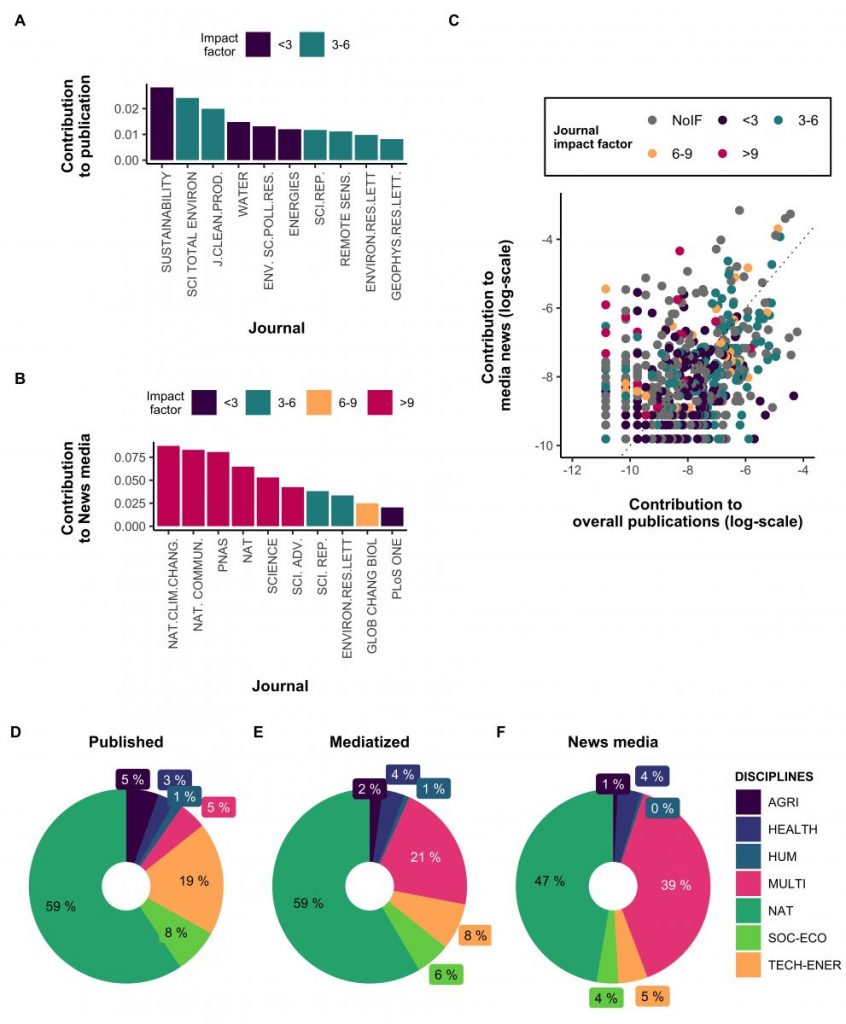
Perga, M.-E., O. Sarrasin, J. Steinberger, S. N. Lane, and F. Butera. 2023. The climate change research that makes the front page: Is it fit to engage societal action? Global Environmental Change 80: 102675.
This paper is a collaboration of natural and social scientists from UNIL. The paper analyses the selectivity by the gatekeepers of mediatization, i.e. newsrooms, press offices of academic institutions and wealthy top-tier journals. The current mediatization model concentrates attention on research outputs from natural science. Mediatization discards the social, economic, technological aspects of climate change research. News media selectivity reduces climate change research to the role of a sentinel and whistleblower for the large-scale, observed, or end-of-century consequences of climate change for natural Earth system components.
Reviewing the social psychological mechanisms that underlie behavioral change, we argue that the consequent mediatization of #climate change research fails to breed real society engagement in actions. Selected features may move the public but not trigger public movements.
A transformative agenda for the mediatization of climate change research implies aligning newsworthiness with news effectiveness, i.e., addressing the extent to which communication is effective in presenting research that is likely to produce behavioral change.
Through the publication and mediatization of more solution-oriented, interdisciplinary outputs that take into account the public’s resistance to change, researchers and news professionals may move from being the whistleblowers of the problem to being part of the solution
